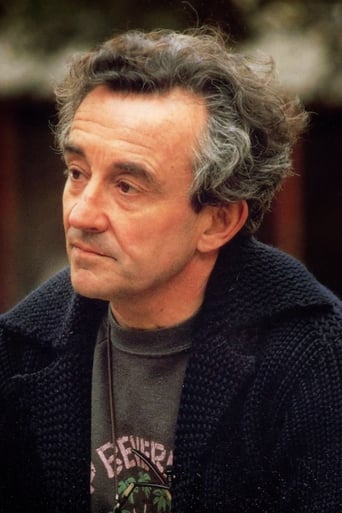Louis Malle
| 30 Oct 1932 | Thumeries, Nord, France
• 539 views • 0 thumbs up • 0 thumbs down
Death date: 23 Nov 1995
Biography
Louis Marie Malle was a French film director, screenwriter, and producer. His film Le Monde du silence won the Palme d'Or in 1956 and the Academy Award for Best Documentary in 1957, although he was not credited at the ceremony with the award instead being presented to the film's co-director Jacques Cousteau. Later in his career he was nominated multiple times for Academy Awards. Malle is also one of the few directors to have won the Golden Lion multiple times.
Malle worked in both French cinema and Hollywood, and he produced both French and English language films. His most famous films include the crime film Ascenseur pour l'échafaud (1958), the World War II drama Lacombe, Lucien (1974), the romantic crime film Atlantic City (1980), the comedy-drama My Dinner with Andre (1981), and the autobiographical film Au revoir les enfants (1987).
Malle was born into a wealthy industrialist family in Thumeries, Nord, France. He initially studied political science at Sciences Po before turning to film studies at IDHEC instead.
He worked as the co-director and cameraman to Jacques Cousteau on the documentary The Silent World (1956), which won an Oscar and the Palme d'Or at the 1956 Academy Awards and Cannes Film Festival respectively. He assisted Robert Bresson on A Man Escaped (French title: Un condamné à mort s'est échappé ou Le vent souffle où il veut, 1956) before making his first feature, Ascenseur pour l'échafaud in 1957 (Elevator to the Gallows). A taut thriller featuring an original score by Miles Davis, Ascenseur pour l'échafaud made an international film star of Jeanne Moreau, at the time a leading stage actress of the Comédie-Française. Malle was 24 years old.
Malle's The Lovers (Les Amants, 1958), which also starred Moreau, caused major controversy due to its sexual content, leading to a landmark U.S. Supreme Court case regarding the legal definition of obscenity. Malle is sometimes associated with the nouvelle vague movement. Malle's work does not directly fit in with or correspond to the auteurist theories that apply to the work of Godard, Truffaut, Chabrol, Rohmer and others, and he had nothing whatsoever to do with the Cahiers du cinéma. However, it does exemplify many of the characteristics of the movement, such as using natural light and shooting on location, and his film Zazie dans le métro ("Zazie in the Metro," 1960, an adaptation of the Raymond Queneau novel) inspired Truffaut to write an enthusiastic letter to Malle.
In 1968 Malle visited India and made a seven-part documentary series L'Inde fantôme: Reflexions sur un voyage and a documentary film Calcutta, which was released in cinemas. Concentrating on real India, its rituals and festivities, Malle fell afoul of the Indian government, which disliked his portrayal of the country, in its fascination with the pre-modern, and consequently banned the BBC from filming in India for several years. Malle later claimed his documentary on India was his favorite film.
Malle later moved to the United States and continued to direct there. Just as his earlier films such as The Lovers helped popularize French films in the United States, My Dinner with Andre was at the forefront of the rise of American independent cinema in the 1980s.































